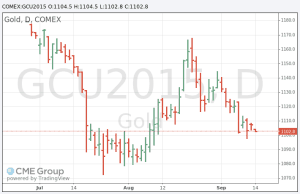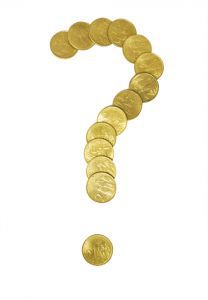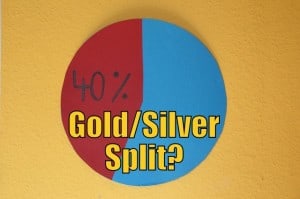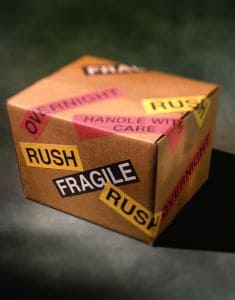We receive a great deal of questions from first time gold and silver buyers. So we thought it worthwhile to put them all into the one place…
Buying precious metals can be a confusing project to embark on. In fact that was one of the reasons we set up Gold Survival Guide in the first place.
Before we even started to offer any bullion for sale most questions we received were along the lines of what, where, how and from whom to buy?
(In case you don’t know our history we started out just writing about gold and silver from a New Zealand perspective. It wasn’t until we received mainly questions about buying physical bullion in NZ that we focussed on this area and then actively sought out deals with suppliers for our readers.)
Anyway we still get plenty of questions from first time buyers and so we thought it might be useful for you to see some of the most common questions and our answers. So here we go…
What is the Spot Price of Gold or Silver?

In simple terms the spot price is the cash price of a commodity like gold or silver, at a given time and place.
It relates to large bars of metal stored in certified warehouses where usually just the receipt of ownership changes hands not the physical metal.
However, realise that when buying smaller bars and ingots, the spot price doesn’t include other costs that may be involved such as: manufacturing and minting costs for bars, ingots or coins; seller mark ups; storage costs; or delivery and insurance costs.
So this is why prices are quote as “spot + 3.5%” for example.
(If you wanted the pedantic answer it would be that spot doesn’t actually exist. There is only “The Bid” – what someone is prepared to pay. And “The Ask” – what someone is prepared to sell for, and one has to meet the other. The spot price is just a theoretical price midway between the 2).
Also bear in mind that the spot price generally reported in the media is usually in US dollars. So when buying precious metals here in New Zealand the “spot price” is first converted to NZ dollars using the prevailing USD/NZD exchange rate and then the premium of say 3.5% for example is added to that. Here’s an article we wrote discussing this topic: Avoid worrying about the NZD/USD exchange rate when buying gold
And you can track the NZ dollar gold and silver price on our prices page.
Plus there’s also historical charts of both on there too.
For even more on the spot price see: What does the gold (or silver) spot price mean?
If Precious Metals Markets Are Manipulated Why Should I Buy Gold and Silver?
Will this manipulation continue on? Can they make the gold price crash? How much control do they have over the gold price in the long term? And if this manipulation is on-going how can I trust gold/silver to hold or increase in value?
These a few of the questions that have been cropping up recently. With the LIBOR scandal exposed, the concept of market manipulation seems to be the word du jour at the moment
Read more: Further Details on Silver Manipulation Exposed
No one really knows the answers to these questions, just as no one knows to what extent gold prices are manipulated or “managed”.
Here’s two quite contradictory opinions on manipulation that we posted a little while ago:
Precious Metals Market Manipulation
It makes sense to us that “the powers that be” do not want an explosion in gold because that would alert many more people to the failings of the current monetary system.
So who knows how much control the powers that be have over the prices.
We know they fell significantly back in 2008 but the precious metals were the first to rise afterwards as well and didn’t take too long to regain their previous levels.
In terms of if this manipulation is ongoing how can we trust them to retain or increase in value compared to fiat currency?
We only have history as a guide for this. Assuming manipulation has been going on for the past decade, gold and silver have steadily increased in value nonetheless during this time (or rather paper currencies have continued to fall).
So it could argue that all things being equal they will continue to gain in purchasing power in the future. Some have called this a “managed rise”.
So if there is manipulation, it seems there is a limit to how much the prices can be controlled. We have seen a fair amount of evidence which does suggest there is about a 100 to 1 ratio of “paper” gold versus actual physical gold.
So this derivitisation of the gold market could help the powers that be “manage” the price to some degree. Of course we don’t profess to know all the answers, no one does!
Read more: If Gold and Silver Are Manipulated, Why Bother Investing?
How Much Gold and Silver Should I Purchase?
We get this question a bit. But as we’re not financial advisors it’s not our role to tell you how much paper wealth to convert to bullion.
We simply say consider your net worth and decide how much you want to “remove from the system” and allocate to physical bullion with no counter-party risk.
But we have taken a look at various studies on this topic. So look at: What Percentage of Gold and Silver Should Be in My Portfolio?
Then once you decided on a percentage of your net worth, you could also consider splitting this amount into say, for example, possibly thirds. Grab a position if you don’t have any bullion, but keep some powder dry in case of a dip in prices.
You can then also consider dollar cost averaging. Dollar cost average means to buy on a set day of the month regardless of the price. Or every 2 months or 3 months or whatever your preference is and your budget allows.
Overall this not only removes the emotion of buying but should give a decent overall entry price.
Here are a few of past articles that may be of some help if you want to look at timing your entry:
Is Now a Good Time to Buy Gold in New Zealand?
Understanding exchange rates when buying: Avoid Worrying About the NZD/USD Exchange Rate When Buying Gold
Some simple methods to determine lower risk times to buy: Gold and Silver Technical Analysis: The Ultimate Beginners Guide
What Percentage of Gold vs Silver Should I Buy?
This really comes down to individual preference.
We see people who either buy all gold, all silver, or a mixture of both in varying amounts.
We’ve actually written two separate articles outlining some of the reasons for buying each metal that still apply today: Why Buy Gold?
In the “Why Buy Silver?” article we outline some of the reasons as to why silver potentially may have more upside than gold. Although history (including recent history in the past few years) also shows that when both metals fall silver usually falls further than gold.
And then here’s a detailed look at this question of gold vs silver:
Should I Buy Gold or Silver? 7 Factors to Consider in Gold vs Silver
Plus check out this video for more on this topic:
Silver or Gold? Which Should You Buy?
You can also read an interesting article by Bron Suchecki where he analysed the performance of gold, silver and various combinations of the two. We can cut to the chase here and say that this shows that a 50:50 mix actually looks like a pretty safe bet over various time periods.
Do I Have to Pay Upfront? (50% deposit option)
Yes as gold and silver prices vary every minute of the day, in order to lock in a price you need to make payment the same day.
However in times where there is high demand and delays in delivery of gold and silver, we have a supplier with an option to lock in a precious metals order with a 50% deposit. And then pay the balance a few days before delivery is due.
If this is of interest then just mention it when you request a silver quote.
How Do I Pay?
The vast majority of our clients (say 99%) pay via online banking. Credit card is not a good option as you will have to pay more due to the card processing charges.
You can pay cash over the counter but this is dependent on what is in stock. So you need to contact us first to get a quote – not just show up at the suppliers premises.
We also now accept Bitcoin and Bitcoin Cash.
For more on the purchase process see: How to Buy and Invest in Gold and Silver
How is Bullion Shipped? Can it Go to My Work or Home Address? Is it Insured?
Bullion is shipped via courier fully insured right up until you or someone at your delivery address signs for it.
The courier doesn’t know the contents of the package (it is plain). Also the package goes from the supplier to the depot first. It is then delivered to you by a different courier to help ensure they don’t know the contents.
But it is at the supplier’s risk until it is signed for it anyway.
Yes bullion can be shipped to a work address. In fact that is often preferred. Given it is a signature required package, it’s more likely they’ll find you at work during business hours than at home.
How Soon After Payment Will I Receive My Bullion?
This depends on current demand. It also depends upon where teh bullion is coming from.
On clearance of funds generally about 4-6 days later for local New Zealand suppliers. Orders are not sent on a Friday to ensure the goods aren’t sitting around a courier depot over the weekend. However depending on demand this can vary considerably. So check when you place your order.
Offshore deliveries can take 9 – 11 business days.
Will Some Products Be Easier to Sell Such as Coins Versus Bars? And Local NZ Bullion Versus Imported Bullion?
We’ve actually answered this in an article or 2 before… PAMP Suisse Gold / Silver vs Local NZ Gold / Silver: Which Should I Buy? And here… NZ Gold Coins (and Silver Coins) or NZ Gold Bars (and Silver Bars): Which Should I Buy?
How Can I Be Sure There Will Be Buyers For My Gold and Silver When I Want To Sell?
All the suppliers we use will buy their products (and in fact even some of each others) back.
There is also a ready market on the likes of Trademe for gold and silver bars and coins.
Also our guess is also that if the precious metals bull market continues, it’s likely that there will be more buyers of gold and silver in the future, coming to the party a bit late in the piece.
So you could make an argument that as the precious metals bull market proceeds it will also be easier to sell your gold and silver than it is now.
Is There a Difference in Price Between Buying and Selling?
Yes – you’ll pay more than the spot price when you buy and less than it when you sell it back (unless you sold on say Trademe or privately you could get more than spot price then). Have a look at our FAQ page – the last question answers this one. And there might be some other useful information on there for you too.
Once I’ve Bought, Where Should I Store My Gold and Silver?
There are a number of options available. We detail a couple of the most common ones here on our Gold and Silver Storage page.
I Read in One of Your Articles That Gold or Silver Coins of 99.9% Purity Are GST Free – Does That Apply to Bars as Well?
Yes, it applies to them regardless of the form – as long as purity is: • gold not less than 99.5% • silver not less than 99.9 From the IRD website covering GST exemptions:
http://www.ird.govt.nz/gst/additional-calcs/calc-spec-supplies/calc-exempt/#gsp Supply of fine metals Fine metal is any form of:
- gold with a fineness of not less than 99.5%
- silver with a fineness of not less than 99.9%
- platinum with a fineness of not less than 99%.
The supply of fine metal is an exempt supply, such as any sale of fine metal by a dealer, or anyone importing fine metal. Exception: When newly-refined fine metal is supplied by a refiner to a dealer as an investment item, it is a zero-rated supply.
For more on GST on precious metals including which coins are affected see: Gold Purity and Silver Purity – A Complete Guide
How Can I Be Sure of the Purity of the Gold or Silver Supplied?
Local gold and silver bars/ingots are stamped with the suppliers “hallmark” and with either 9999 for gold (four 9’s or 99.99% pure) or 999 for silver (three 9’s or 99.9% pure).
Also, in terms of ensuring purity of supplied product the local New Zealand suppliers we use regularly exchange metal with other companies locally and in Australia and so when this happens the metal is assayed again.
So if there was ever a problem with purity they would be found out before too long and as reputation is everything, this would put them out of business.
They are family owned and run businesses, conservative by nature and have been around for over 30 years, supplying precious metals to private investors but also to Jewellers in NZ.
Some overseas products such as bars from Swiss Refiner PAMP come with assay certificates and individual serial numbers.
These cost more than local gold and silver. For example for gold, another $45 per 1 oz bar more and for silver, a further $50 per 1kg bar.
These are more readily exchangeable overseas, so depending on where you intend to sell them, may be a better option for you. For more purity see: Gold Purity and Silver Purity – A Complete Guide
Any Other Questions?
Well, there’s a quite few of the questions we often receive. There are a few other common questions answered on our FAQ page too, so check that out if yours isn’t answered above.
Still have questions you’d like answered?
Leave a comment below or fill in our contact form and we’ll see what we can come up with.
Bear in mind we are not financial advisors so we won’t give specific advice to you but if we get common questions of a more general nature we are happy to share our opinions.
Or pick up the phone and call 0800 888 465 and ask away! If you’re ready or almost ready to buy then head over to our online bullion shop. You can request a quote from there. People often do this just to get a feel for how things work.
Editors Note: First published in 2012, this post was updated 16 September 2016 to include more questions. And again 7 May 2019 to include latest info.





I read an article recently written by a Gentleman who escaped as a child from Nazi Germany in the late 1930’s. He said his father had converted most of their cash into gold coins and diamonds. The diamonds were used as bribes (when needed); the coins were sewn into coats etc to avoid detection. The gold coins were more easily converted into cash or services then gold bars. The average person can relate to a coin better then a precious metal bar.
So one needs to look at where they are purchasing from and what they are buying. We found Ainslie Bullion (Brisbane) selling Perth Mint 1oz Silver Kookaburras for $5.30 a coin under the Perth Mint price when purchased in 100 coin lots – around A$3230.00 with postage and insurance at the time.
Without some form of international recognition and a respected assay certificate New Zealand precious metal coins and bars are harder to sell out of the country, They require an assay to be done before many overseas dealers will touch them.
Most dealers here in Oz send them to the Perth Mint who then melt them down (for a fee)and remake the metal as Oz coins with a certificate.
Pingback: More on China and Gold | Gold Prices | Gold Investing Guide
Sorry we missed your comment earlier Gazza and so only replying now. But thanks for your thoughts.
Yes as we state in these 2 articles there are pros and cons to various types of bullion:
PAMP Suisse Gold / Silver vs Local NZ Gold / Silver: Which Should I Buy?
NZ Gold Coins (and Silver Coins) or NZ Gold Bars (and Silver Bars): Which Should I Buy?
So it does depend on where you intend to sell them. Of course with silver it’s not that easy to take with you on the plane so harder to shift country with in any size. So many people go for local silver as they get more for their money and intend to sell it in NZ anyway.
As always comes down to personal circumstances and preference. Many people get a mixture to try and cover all bases.
Pingback: How the China Slowdown Will Impact NZ - Gold Survival Guide
Pingback: If Gold and Silver Are Manipulated, Why Bother Investing? - Gold Survival Guide
Pingback: Could an Aussie Owned NZ Bank Take Deposits From its NZ Customers if the Parent Bank Failed? - Gold Survival Guide
Pingback: Gold in NZ Dollars Hits New 6 Year Record High - Gold Survival Guide